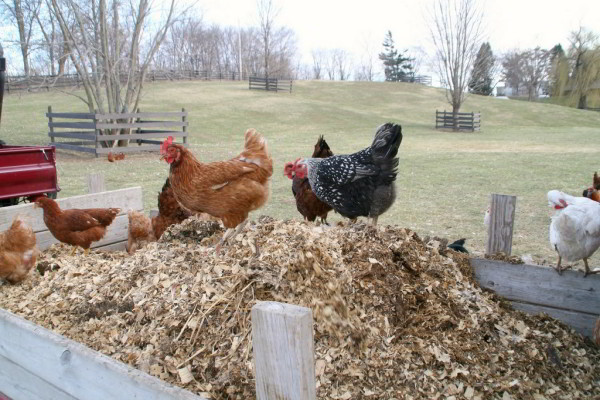
Do I have to clean out my chicken coop every week? I’ve heard about the “deep litter” method for raising chickens. What is that?
It’s a neat, almost-forgotten way to manage a small flock! Instead of scooping out and replacing chicken coop litter frequently, you allow the manure and bedding material to accumulate and decompose inside the coop. As in compost, beneficial microbes actually help control pathogens, so chickens are less susceptible to diseases. If you manage the deep litter properly, your chickens will have a dry, fluffy and absorbent floor to enjoy, and you will have a happier, healthier flock with less maintenance. Plus, by fall or early spring, your garden will have a nice supply of nutrient-rich compost.Here’s the deep litter method in an eggshell: Start by spreading a 3- to 4-inch layer of clean litter on the floor of the coop. Dry grass clippings or leaves, straw, or wood shavings all work well. About once a week, as the manure accumulates (mostly under the roost), toss on another thin layer of litter. Add a handful of scratch grains or food scraps daily, and your chickens will stir the litter for you, incorporating oxygen to aid decomposition. If you see any caked litter, use a rake or fork to help break up the clumps and redistribute the moisture. Keep the coop ventilated, even in winter. You should not notice any odor of ammonia. If you do, add more litter. To increase absorption, add some clay.Over the course of a year, the litter will become 8 to 12 inches deep. Fall or early spring is a good time to clean out the coop — but don’t remove all of the litter, advises poultry expert Harvey Ussery in The Small-Scale Poultry Flock. Leave a base layer in place to inoculate new material with the established beneficial microbes. If the manure-litter compost you remove is thoroughly decomposed and odorless, you can work it directly into garden beds. If some of the fresher manure hasn’t thoroughly decomposed, simply add it to another compost pile.
